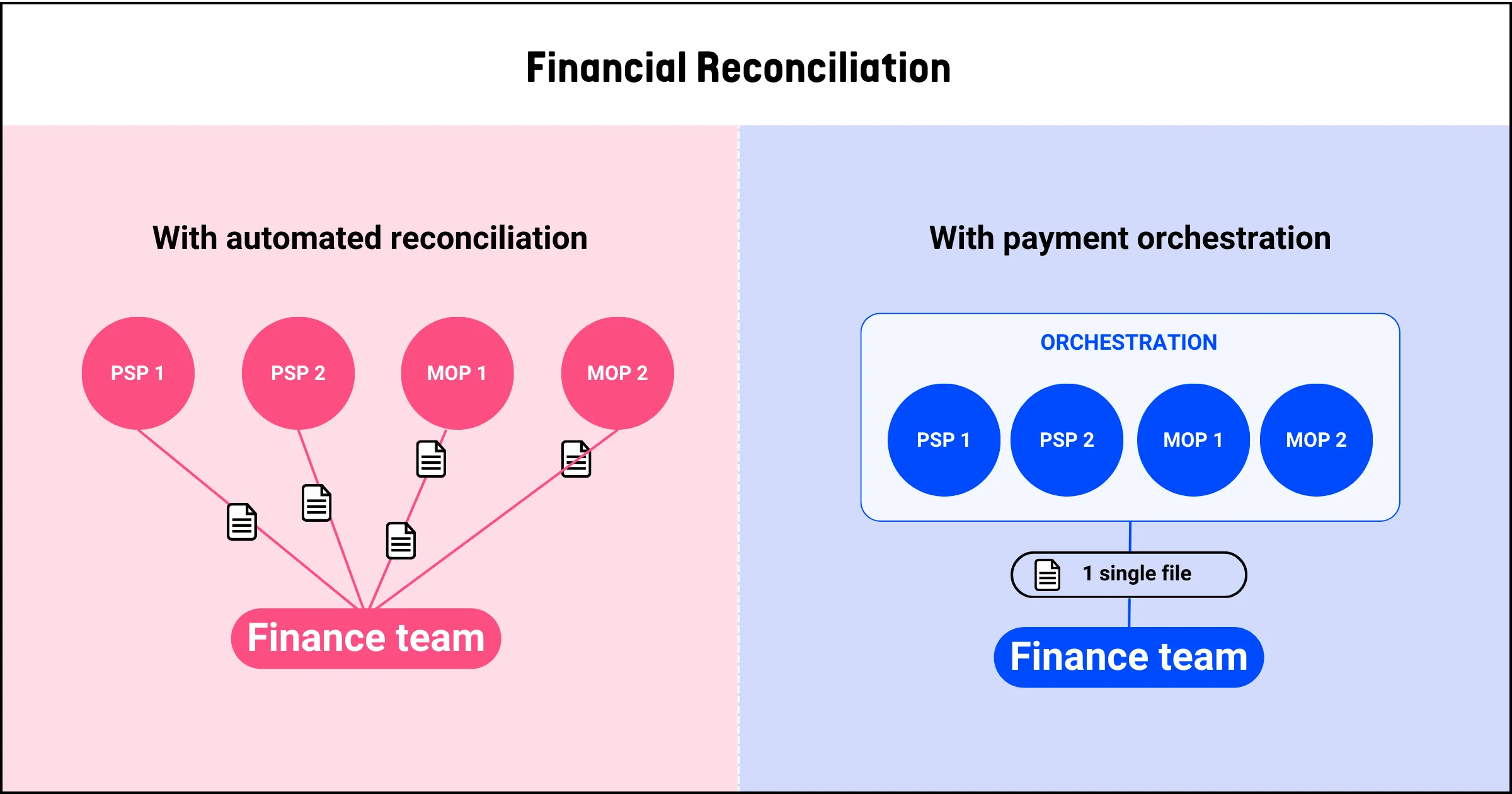Mastering reconciliation: unlocking the power of payment orchestration


For e-merchants, accounting reconciliation can quickly become a real nightmare.
This task involves verifying that every accepted transaction has actually been settled — down to the cent — in the company’s bank account.
Sounds simple? In practice, it's anything but.
With multiple payment service providers (PSPs), reconciliation becomes even more time-consuming… and even more critical.
A standard online payment may take just a few seconds. It flows through banks, processors, and PSPs seamlessly from the buyer’s perspective.
But for more complex flows — involving several PSPs, networks, or banking systems — a payment orchestrator plays a crucial role.
From the very first step in the payment process, Purse helps you optimize, secure, and streamline every transaction.
Behind the scenes, one key component ensures transparency and reliability for finance teams: the reconciliation log.
A reconciliation log is a structured record of all events tied to a specific payment transaction.
Its purpose: match the theoretical payment flow with the actual one — without gaps, surprises, or losses.
It helps answer one very simple question:
🔹 “I sent €100 to Bank X” (our system)
🔹 “I received €99.80” → So… where did the €0.20 go? Fees? Delay? Error?
Now multiply that tiny discrepancy by thousands of transactions — and you start to see the financial risk.
On the conversion side, a multi-PSP setup increases revenue.
But on the finance side? It creates complexity.
Each PSP comes with its own systems, file formats, and reporting rules.
The result: your team receives inconsistent, unstructured data — and has to reconcile everything manually, across multiple dashboards and files.
Despite the complexity, reconciliation logs are critical. They allow you to:
At Purse, we don’t just aggregate payments. We orchestrate them.
Our platform connects to all your PSPs, consolidates all incoming flows, and automatically generates a unified, consistent, multi-source reconciliation log.
No more Excel exports.
No more copy-pasting across interfaces.
No more lost time or manual errors.
With Purse, you get a clear, end-to-end view of your cash flow — no matter how complex your architecture is.
Our reconciliation engine automatically detects and categorizes discrepancies, such as interchange fees or rounding differences, in real time.

✅ Connects to all your PSPs to centralize payment data
✅ Generates a clean, unified, multi-format reconciliation log
✅ Produces structured exports ready to inject directly into your ERP
Payment complexity should never block financial performance.
With automated, orchestrated reconciliation, every transaction becomes transparent, traceable, and reliable — and payments turn from an operational burden into a true growth driver.
At Purse, we believe every transaction deserves to be reconciled — simply, clearly, and without stress.
And you? Ready to say goodbye to reconciliation chaos?